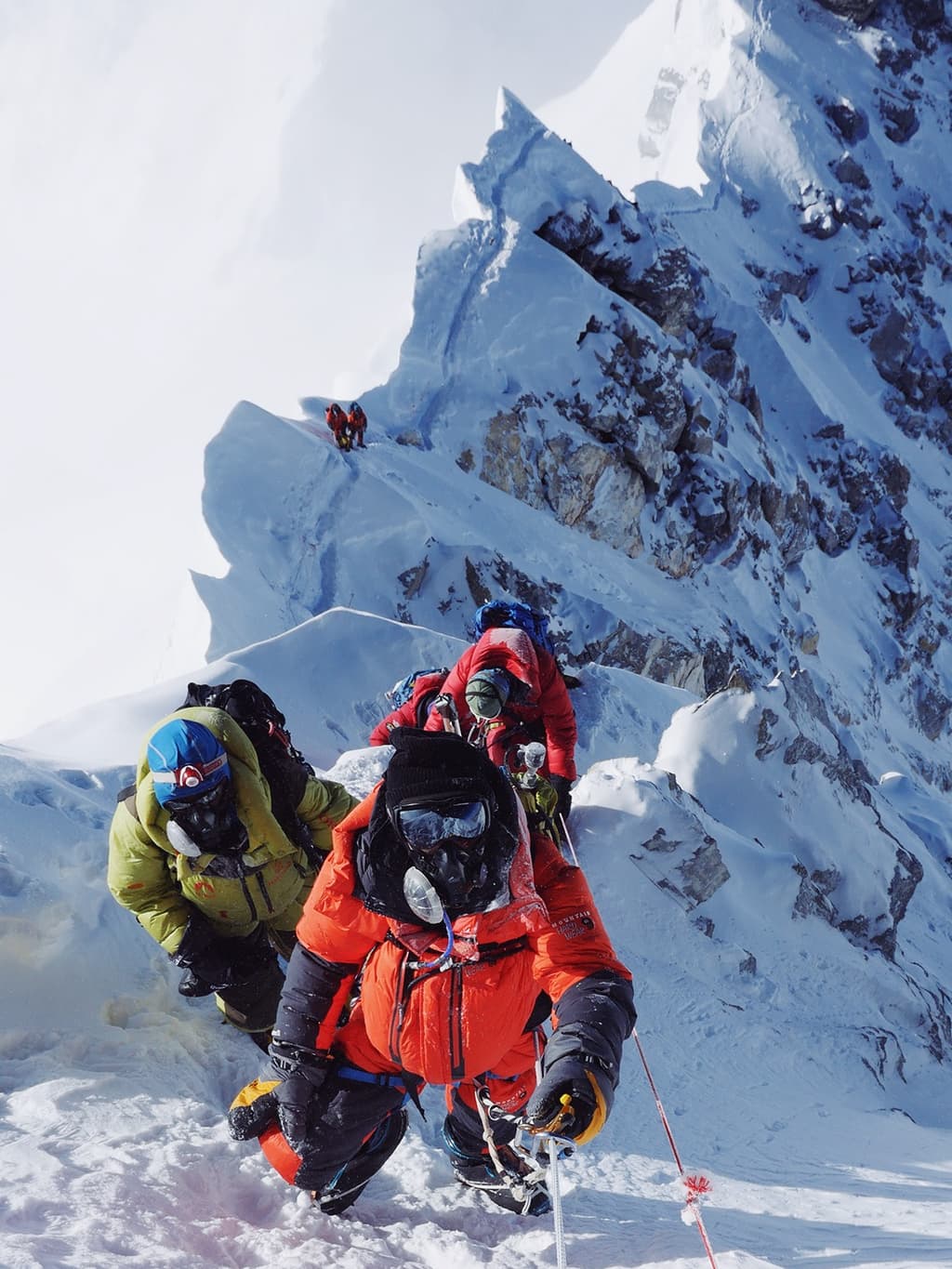Ever dreamed of conquering a Himalayan peak without needing elite mountaineering skills? That's exactly what Island Peak climbing offers - the perfect entry point for adventurous souls who crave that summit feeling.
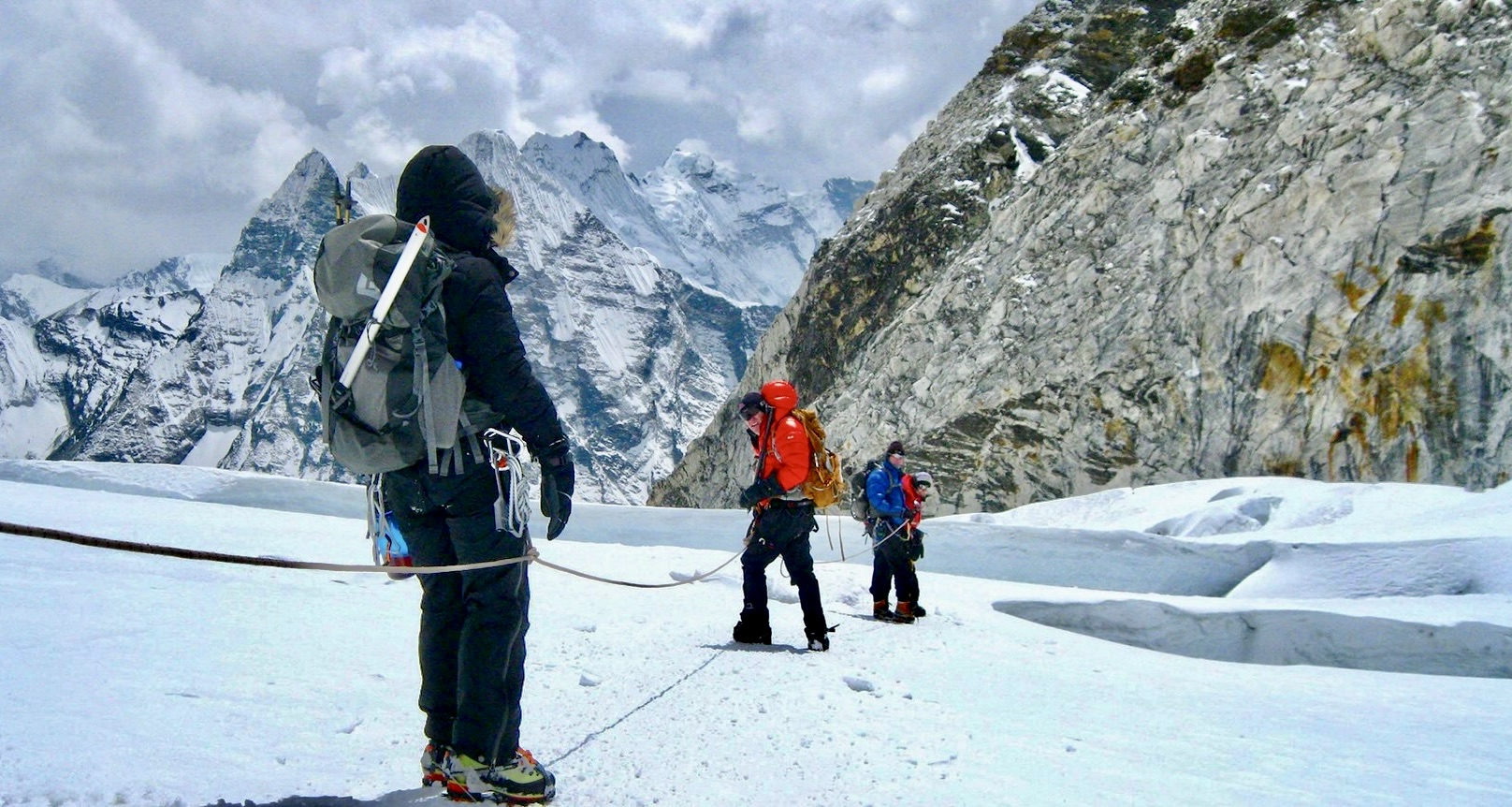
You're probably wondering about the cost. Island Peak climbing packages range from $1,800 to $2,500, depending on your group size and service level. But this isn't just about numbers.
This journey takes you through the legendary Everest region, where every breath feels like an achievement and every view earns its place in your memory bank.
In this guide, we'll break down exactly what your Island Peak adventure includes, the day-by-day itinerary that maximizes acclimatization, and the essential gear that stands between triumph and turning back.
But first, let me tell you about the one preparation mistake that derails most climbers' summit dreams...
Overview of Island Peak Climbing
What makes Island Peak special
Island Peak, standing tall at 6,189 meters, isn't just another mountain in Nepal. We've seen firsthand how this peak captures the hearts of climbers from around the world. The mountain (also known as Imja Tse) got its name because it appears as an island in a sea of ice when viewed from certain angles.
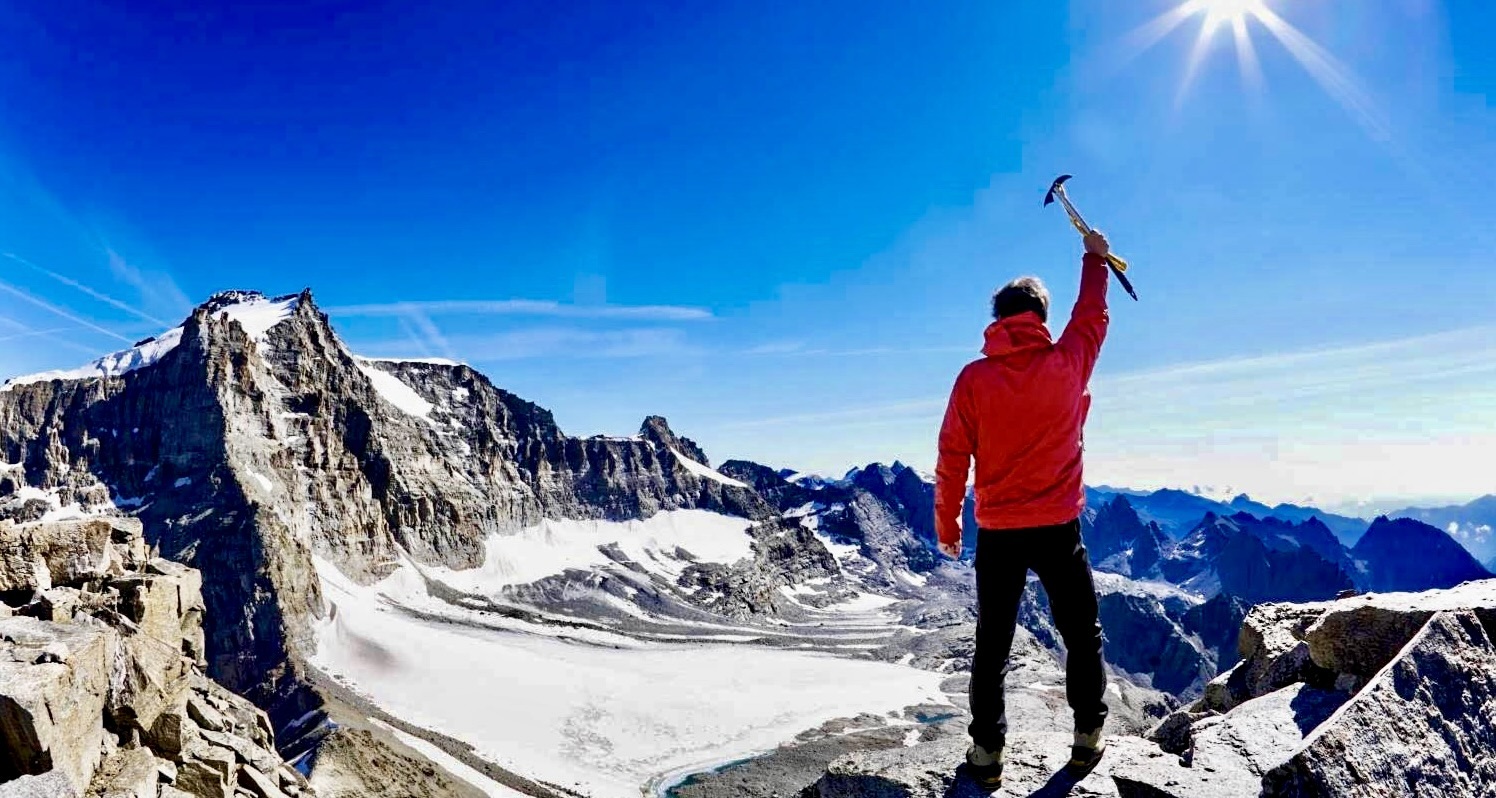
What truly makes this peak special is its perfect blend of accessibility and challenge. We offer our climbers breathtaking panoramic views of Everest, Lhotse, Nuptse, and Makalu – four of the world's highest mountains – all from one summit. The feeling of standing above the clouds while surrounded by these giants is something our clients describe as life-changing.
The route also gives you a taste of real Himalayan climbing without requiring extensive technical experience. We love watching our climbers' faces light up when they cross the thrilling glacier crossing and navigate the final headwall with fixed ropes.
Difficulty level and required skills
Island Peak falls into the "moderately difficult" category. We classify it as a trekking peak, but don't be fooled – it still demands respect and preparation.
For success on Island Peak, we recommend:
- Previous high-altitude trekking experience (4500m+)
- Basic snow and ice climbing skills
- Good physical fitness (ability to walk 6-8 hours daily)
- Mental stamina for the summit push
The most challenging sections include a 100-meter headwall with slopes up to 45 degrees and the final ridge traverse to the summit. We've seen even experienced hikers find these sections demanding, which is why our guides provide comprehensive training during the acclimatization days.
Best time to climb Island Peak
The Himalayan weather dictates two primary climbing seasons for Island Peak:
Pre-monsoon (Spring): March to May
- Stable weather patterns
- Warmer temperatures
- Beautiful rhododendron blooms in lower elevations
- Busier trails and teahouses
Post-monsoon (Autumn): September to November
- Clearest skies and best visibility
- Cooler temperatures
- Stable weather conditions
- Less crowded than spring
We generally advise against summer climbs (June-August) due to monsoon conditions that bring heavy rain, snow, and dangerous climbing conditions.
Why choose Everest Sherpa Expeditions
With over 15 years guiding climbers on Island Peak, we bring unmatched local expertise to your adventure. Our team consists of certified Sherpa guides who've summited Everest multiple times and know Island Peak like their backyard.
What sets us apart:
- Small groups (maximum 6 climbers per guide)
- Comprehensive pre-climb training on glacier travel and fixed-rope techniques
- High-quality equipment and safety protocols
- Flexible itineraries to maximize acclimatization and summit success
- Authentic cultural experiences in Sherpa villages
We prioritize both your success and safety. Our 93% summit success rate speaks for itself, but we're equally proud of our perfect safety record. When you climb with us, you're not just a client – you become part of our mountaineering family.
Comprehensive Island Peak Climbing Cost
Base package price and what it includes
Our Island Peak climbing package starts at $2,450 per person, offering exceptional value for serious climbers. This base price covers all the essentials you need for a successful summit attempt.
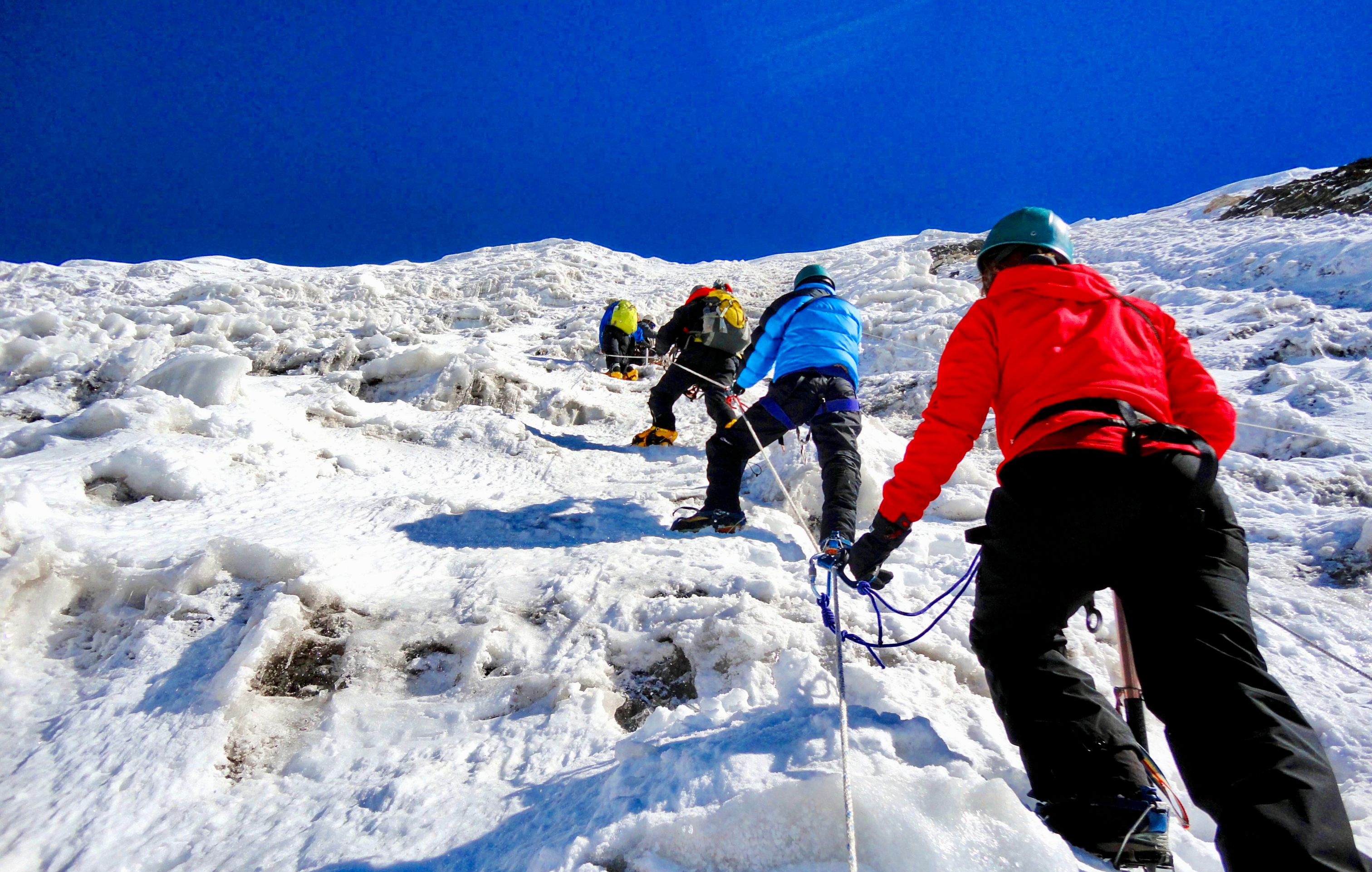
We include:
- Airport transfers in Kathmandu
- 3 nights accommodation in Kathmandu (3-star hotel)
- All ground transportation per itinerary
- Domestic flights (Kathmandu-Lukla-Kathmandu)
- Full board meals during the trek and climb
- Teahouse/lodge accommodations during the trek
- Camping equipment at Island Peak base camp
- Experienced climbing Sherpa guide (1:2 ratio)
- Porters to carry group equipment
- All necessary climbing permits
- Group climbing gear (ropes, ice screws)
- Emergency oxygen and medical kit
- All government taxes and official fees
Additional expenses to consider
We're upfront about costs that aren't included in our base package. Budget for:
- International flights to Nepal ($800-$1,200)
- Nepal visa fee ($50 for 30 days)
- Personal climbing gear rental if needed
- Additional nights in Kathmandu ($40-100/night)
- Personal expenses and souvenirs
- Tips for guides and porters ($150-200 recommended)
- Extra snacks and beverages beyond provided meals
- Hot showers in higher elevation teahouses ($5-10)
- Battery charging at lodges ($3-5 per device)
- Travel and rescue insurance (mandatory)
Permit and insurance costs
The permit system for Island Peak changed recently, and we handle all the paperwork for you. Current permit costs included in our package:
- Island Peak climbing permit: $250 per person (spring), $125 (autumn)
- Sagarmatha National Park entry fee: $30
- Khumbu Pasang Lhamu Rural Municipality fee: $20
- TIMS card: $10
Insurance is non-negotiable for this climb. You'll need:
- Comprehensive travel insurance with emergency evacuation up to 6,000m ($150-200)
- Trip cancellation coverage recommended
- Medical coverage minimum $50,000
Equipment rental options
Don't stress about investing in expensive technical gear. We offer quality rental equipment at reasonable rates:
|
Equipment |
Rental Cost (USD) |
|
Down suit |
$150 |
|
Sleeping bag (-20°C) |
$80 |
|
Ice axe |
$40 |
|
Crampons |
$40 |
|
Climbing boots |
$70 |
|
Harness |
$30 |
|
Jumar/ascender |
$20 |
|
Helmet |
$25 |
|
Complete package |
$350 |
All rental equipment is sanitized between uses and regularly inspected for safety.
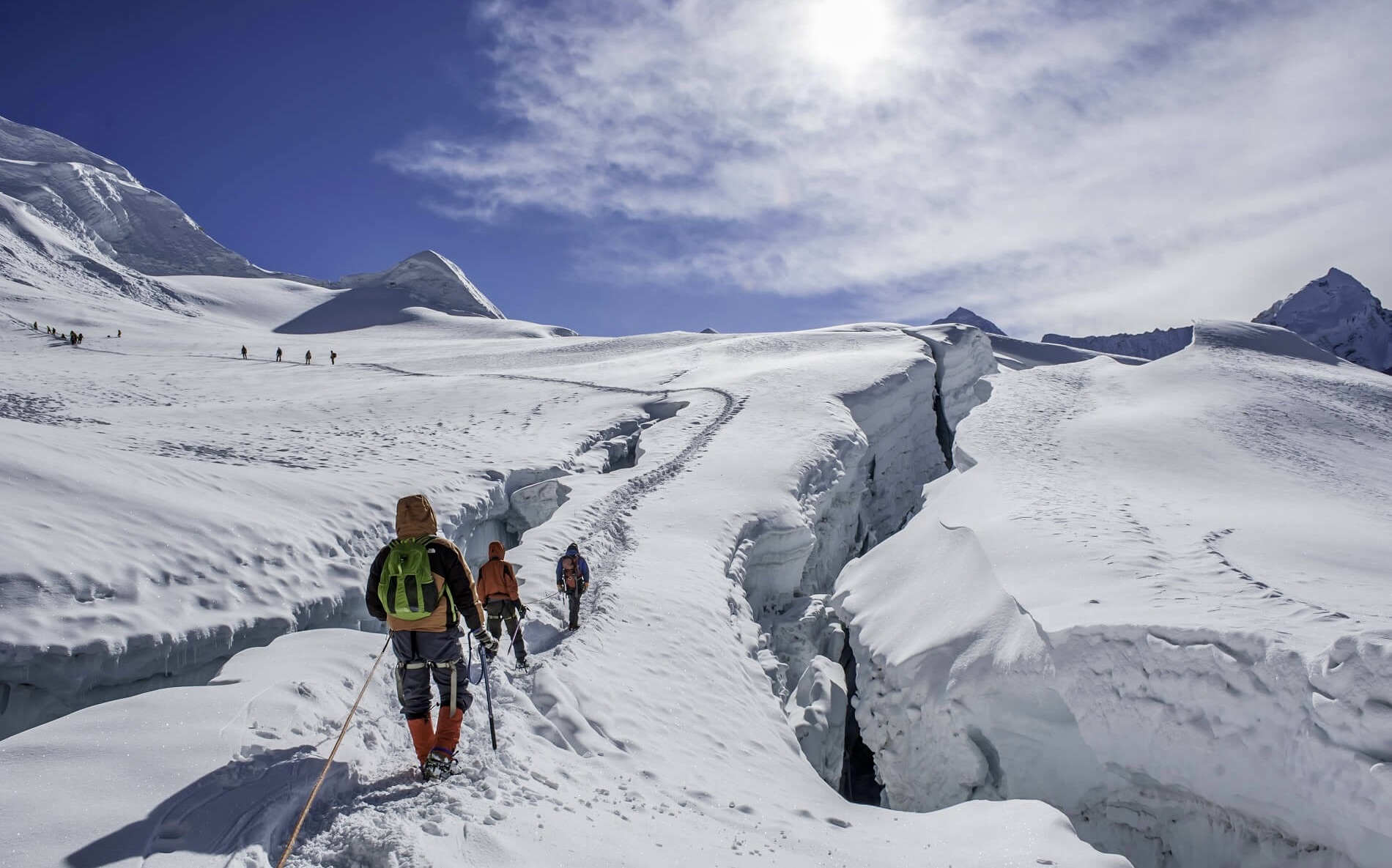
Cost comparison with other climbing packages
We've done the research, so you don't have to. Here's how our Island Peak package stacks up:
|
Company |
Base Price |
Group Size |
Included Services |
Success Rate |
|
Everest Sherpa Expeditions |
$2,450 |
Max 12 |
All-inclusive, 1:2 guide ratio |
85% |
|
Budget Operators |
$1,800-2,000 |
15-20 |
Basic services, limited support |
60-70% |
|
Premium Agencies |
$3,000-3,500 |
6-8 |
Luxury accommodations, 1:1 guide |
85-90% |
|
International Operators |
$3,500-4,500 |
8-10 |
Western leader + local guides |
80-85% |
Our sweet spot balances cost with quality service and high success rates. We're not the cheapest option, but that's because we don't cut corners on safety or support.
Detailed Island Peak Climbing Itinerary
Day-by-day breakdown of the journey
Day 1: Arrival in Kathmandu (1,400m)
We welcome you at Tribhuvan International Airport and transfer you to your hotel. After checking in, we hold a briefing about your Island Peak expedition, covering gear check and last-minute preparations.
Day 2: Kathmandu to Lukla Flight and Trek to Phakding (2,651m)
An early morning flight takes us to Lukla's thrilling mountain airstrip. After meeting our porters, we begin our trek through Sherpa villages to Phakding, an easy downhill walk to help with gradual acclimatization.
Day 3: Phakding to Namche Bazaar (3,440m)
We trek alongside the Dudh Koshi River, crossing several suspension bridges. The challenging uphill climb to Namche rewards us with our first glimpse of Everest (weather permitting). Namche serves as our gateway to the high Himalayas.
Day 4: Acclimatization Day in Namche
We spend a day here following the "climb high, sleep low" principle. Our acclimatization hike takes us to the Everest View Hotel for stunning mountain panoramas before returning to Namche for the night.
Day 5: Namche to Tengboche (3,870m)
The trail offers superb views of Ama Dablam, Lhotse, and Everest. We visit Tengboche Monastery, the spiritual center of the Khumbu region.
Day 6: Tengboche to Dingboche (4,410m)
We descend to Imja Khola river before climbing to Dingboche, located in a sheltered valley. The landscape transitions to alpine terrain with less vegetation.
Day 7: Acclimatization Day in Dingboche
Another vital acclimatization day includes a hike up the nearby ridge for views of Island Peak and other Himalayan giants. We return to Dingboche for rest and preparation.
Day 8: Dingboche to Chhukung (4,730m)
A short but steady climb brings us to Chhukung, our final village before Island Peak Base Camp. We begin preparing our climbing equipment and review climbing techniques.
Day 9: Chhukung to Island Peak Base Camp (5,200m)
We trek through moraines and glacial valleys to reach Base Camp, where we set up our tents and prepare for summit push.
Day 10: Pre-summit Training Day
Our climbing guides conduct thorough training sessions covering rope techniques, crampon use, and safety procedures on similar terrain to what we'll encounter during the summit push.
Acclimatization schedule
Our carefully designed acclimatization schedule maximizes your chances of summit success while prioritizing safety. We build in multiple acclimatization days at strategic elevations:
- Day 4: Namche Bazaar (3,440m) - Hike to higher elevations, returning to sleep at Namche
- Day 7: Dingboche (4,410m) - Climb nearby ridges for additional acclimatization before heading higher
- Day 10: Base Camp (5,200m) - Technical training day that also serves as final acclimatization before summit attempt
This gradual ascent profile helps your body adapt to decreasing oxygen levels. We closely monitor everyone for altitude-related symptoms throughout the journey. Our guides are trained to recognize early signs of altitude sickness and take appropriate action when necessary.
Summit day preparation and strategy
Evening Preparation (Day 10)
We have an early dinner around 5:00 PM, followed by final gear checks. Everything gets packed and ready for the summit push: headlamps, extra batteries, water, high-energy snacks, and all essential climbing gear.
Summit Push (Day 11)
Our alpine start begins around 1:00 AM. After a light breakfast, we begin our climb in darkness by headlamp. The strategy involves:
- Steady pace to High Camp (5,600m)
- Brief rest before tackling the rock scramble section
- Putting on crampons and harnesses before the glacier
- Roped travel across the glacier to reach the base of the headwall
- Using fixed ropes to ascend the 45-degree headwall
- Final ridge traverse to the summit (6,189m)
We aim to reach the summit by mid-morning when weather conditions are typically most favorable. After celebrating and capturing photos from the top, we descend carefully to Base Camp, focusing on safety during the technical sections.
Contingency plans for weather delays
Mountain weather is notoriously unpredictable, so we build flexibility into our itinerary:
- We include two buffer days (Days 12-13) that can be used for weather delays
- Our team receives daily weather forecasts via satellite communication
- If conditions look unfavorable, we'll postpone the summit attempt rather than risk safety
- In case of extended bad weather, we may need to adjust the remainder of the itinerary
Safety remains our absolute priority. If weather conditions don't allow for a safe summit attempt within our contingency window, we won't hesitate to turn back. The mountains will always be there for another day, and we ensure you understand this philosophy from the beginning of our journey together.
Essential Preparation for Island Peak
Physical training recommendations
We can't stress this enough: Island Peak isn't your average weekend hike. Starting your training at least 3-4 months before the climb will make all the difference.
Focus on cardiovascular exercises like running, cycling, or swimming for 30-45 minutes, 4-5 times weekly. Add in stair climbing with a loaded backpack to simulate the ascent.
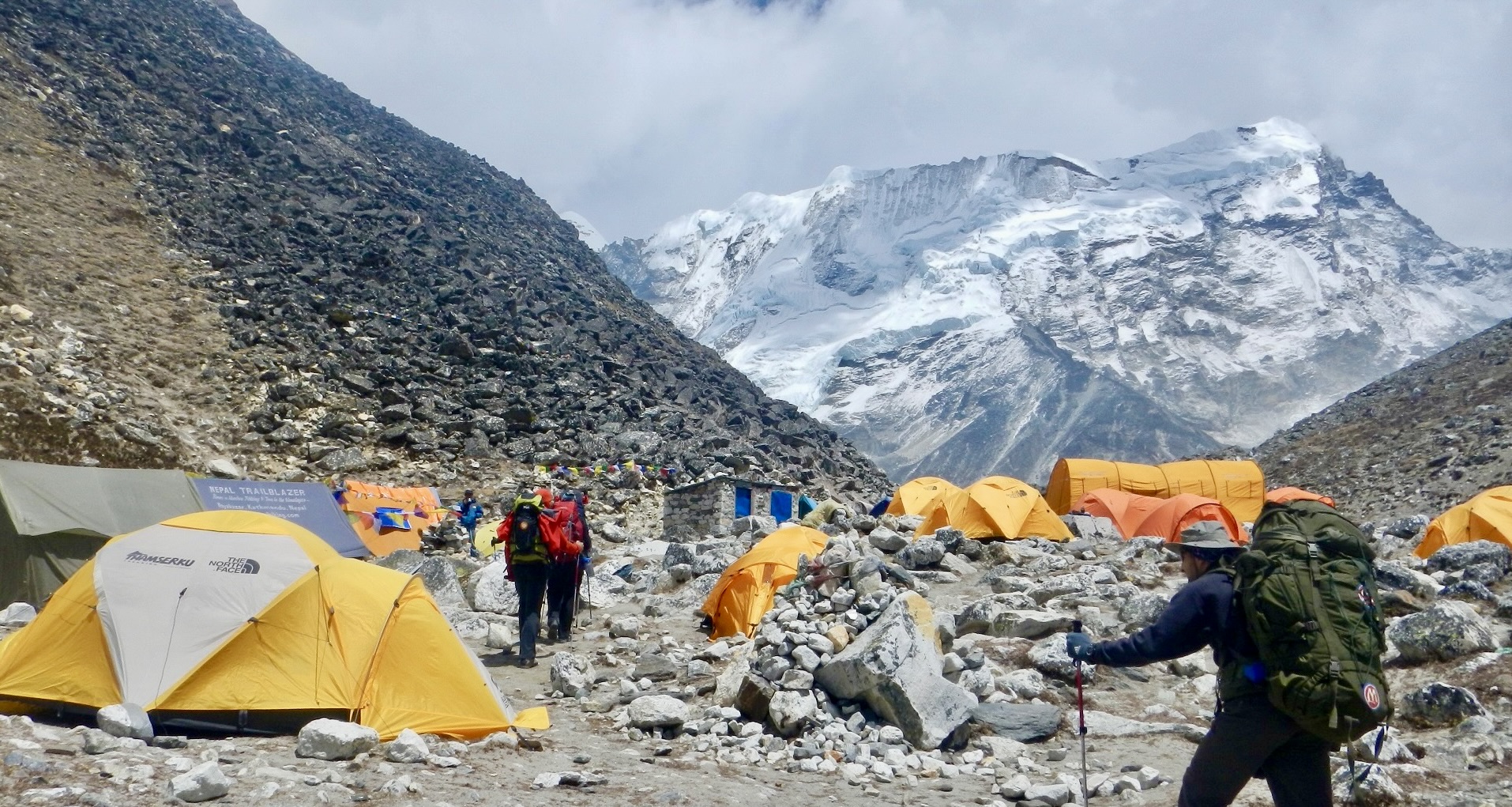
Strength training matters too. We recommend exercises targeting your legs, core, and upper body. Squats, lunges, and step-ups build leg power, while planks and Russian twists strengthen your core. Don't neglect your upper body - push-ups and pull-ups prepare you for rope work.
The real game-changer? Training at altitude or using an elevation mask if you're coming from sea level. And weekend hikes with a loaded pack (15-20kg) will get your body used to what's coming.
Required technical climbing skills
Island Peak demands more than just fitness. You'll need basic mountaineering skills, including:
- Crampon use on various terrains
- Ice axe handling (self-arrest is crucial)
- Rope management for fixed lines
- Jumar (ascending device) techniques
- Proper harness and carabiner handling
We offer pre-climb training at base camp, but arriving with some experience gives you a huge advantage. Even practicing knots and harness setup at home helps build confidence.
Recommended gear and equipment list
Having the right gear can make or break your Island Peak experience:
|
Category |
Essential Items |
|
Climbing Gear |
Harness, helmet, crampons, ice axe, jumar, carabiners (3-4), figure-8 descender |
|
Clothing |
Down jacket, waterproof outer layers, thermal underwear, multiple glove layers, warm hat, sun hat |
|
Footwear |
Double plastic or hybrid mountaineering boots, hiking boots for approach |
|
Accessories |
Headlamp with spare batteries, water bottles (2L minimum), sun protection (SPF 50+), glacier glasses |
|
Personal |
Medications, toiletries, quick-dry towel, sleeping bag (-20°C rated) |
We provide group climbing equipment, but personal items must fit properly. Don't skimp on quality - this isn't the place to cut corners.
Altitude sickness prevention
We take altitude sickness seriously. Our itinerary includes proper acclimatization days, but you need to do your part too:
- Hydrate constantly (4-5 liters daily)
- Climb high, sleep low when possible
- Take it slow - "pole pole" as they say in Nepal
- Consider Diamox (consult your doctor first)
- Monitor for symptoms (headache, nausea, dizziness)
Most importantly, listen to your body and be honest with your guides about how you're feeling. No summit is worth your health. We've built extra days into our itinerary specifically for acclimatization, which dramatically improves success rates and safety.
Services Provided by Everest Sherpa Expeditions
Experienced climbing guides and support staff
We don't mess around when it comes to our team. Our guides aren't just people who've climbed Island Peak a few times – they're seasoned Sherpas with decades of experience in the Everest region. Many have summited Everest multiple times and know Island Peak like the back of their hand.
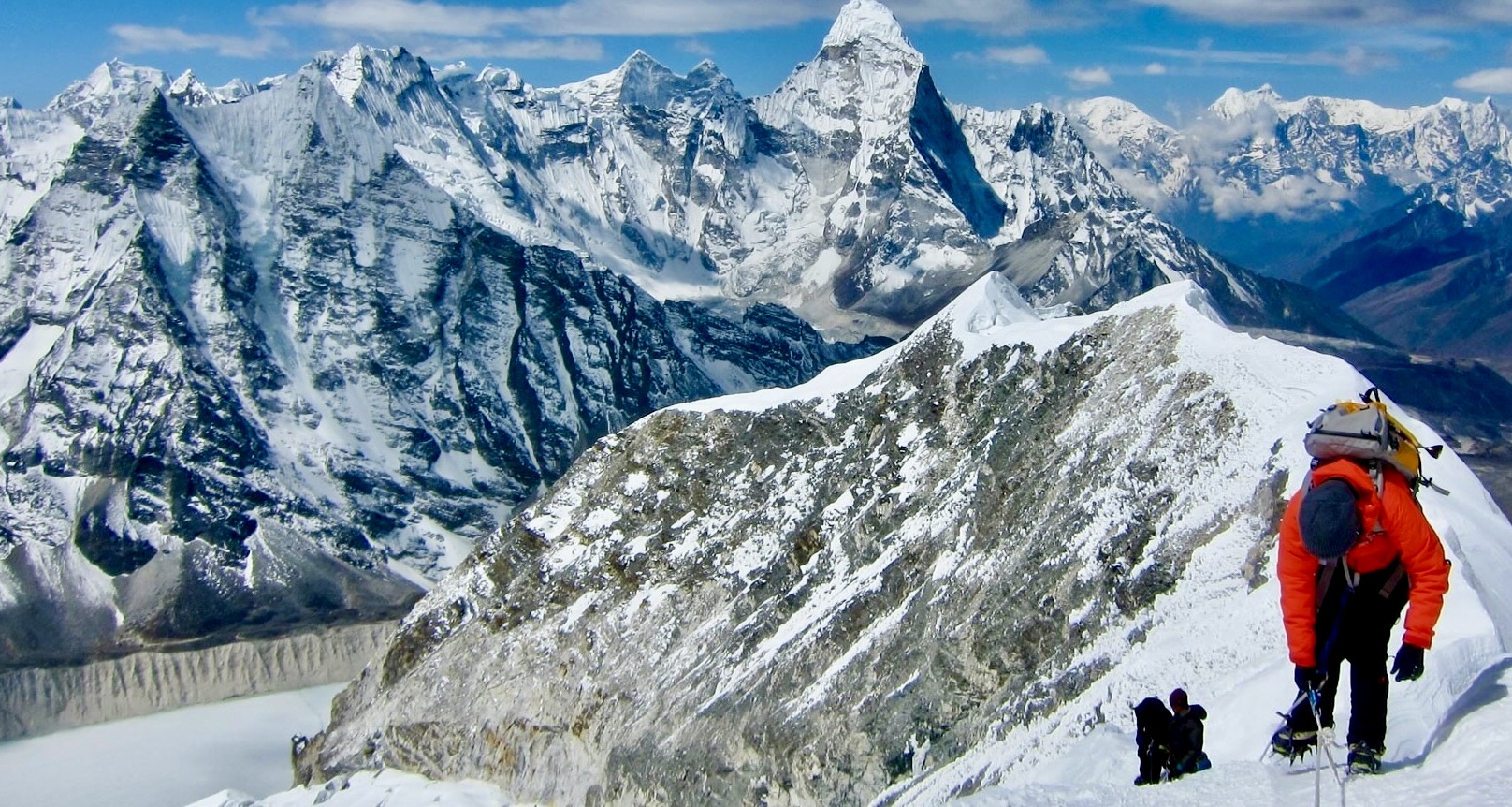
Our support staff includes porters, cooks, and base camp managers who work together seamlessly to make your expedition comfortable. What makes our team special? They're not just skilled professionals – they're passionate mountaineers who genuinely care about getting you to the summit safely.
Safety protocols and emergency procedures
Safety isn't something we compromise on. Before your climb, we conduct thorough gear checks and training sessions to ensure you're prepared. Our guides constantly monitor weather conditions and make smart decisions based on real-time information.
We maintain radio contact between our teams and carry satellite phones for emergency communications. Oxygen supplies, first aid kits, and evacuation protocols are always in place. If something goes wrong, we've got helicopter evacuation arrangements with hospitals in Kathmandu.
Accommodation and meal arrangements
From the moment you land in Kathmandu to your return, we've got your stay covered. In Kathmandu, we book comfortable hotels with all the amenities you need. During the trek, you'll stay in the best available tea houses along the route.
Our camp cook prepares nutritious meals that balance taste and energy needs. We understand that good food is crucial for maintaining strength and morale during your climb. Special dietary requirements? Just tell us beforehand, and we'll accommodate them.
Personalized climbing support
No two climbers are the same, which is why we don't offer one-size-fits-all packages. We tailor our support based on your experience level, fitness, and personal goals. Need extra acclimatization days? Want more technical training? Just ask.
Our guides provide one-on-one coaching during crucial sections of the climb and adjust the pace to match your abilities. We're there with you every step of the way – from your first training session to your triumphant summit photo.

Practical Information for Climbers
Visa requirements for Nepal
Getting your Nepal visa is pretty straightforward. Most nationalities can obtain a visa-on-arrival at Tribhuvan International Airport in Kathmandu. You'll need:
- A valid passport with at least 6 months' validity
- A completed application form (available at the airport)
- A passport-sized photo
- Visa fee in cash (US dollars work best)
Current visa fees are:
- 15 days: $30
- 30 days: $50
- 90 days: $125
If you prefer to avoid airport queues, we recommend applying online through the Nepal Immigration website before your trip.
Getting to and from Lukla
The journey to Lukla is an adventure in itself! We typically fly from Kathmandu to Lukla's Tenzing-Hillary Airport. Flights operate daily during good weather, taking about 30-40 minutes.
A few things to know:
Flights are weather-dependent and delays are common
- The 45kg baggage allowance includes your checked bag and carry-on
- Morning flights have the best chance of operating due to clearer weather
- We always recommend building buffer days into your itinerary
Alternative routes include flying to Ramechhap (during high season) or taking a jeep to Phaplu and trekking an additional 3 days.
Communication facilities during the expedition
Staying connected during your Island Peak climb is easier than you might think. Most teahouses in the Khumbu region offer Wi-Fi services for a fee (roughly $3-5 per day).
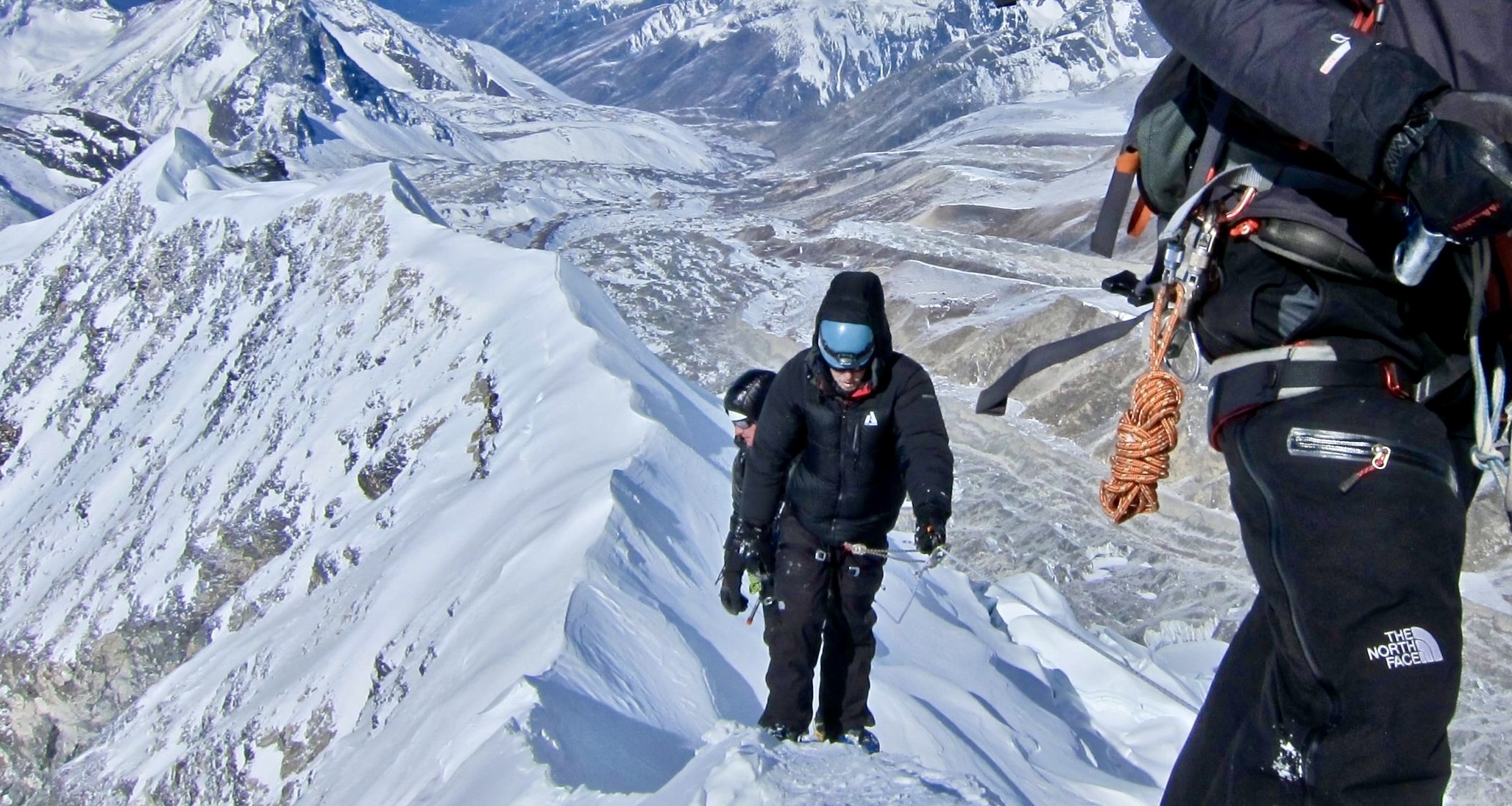
Cell coverage has improved dramatically in recent years. We recommend purchasing a local SIM card (Ncell or NTC) in Kathmandu before departure. Coverage extends to most villages along the trekking route, though it becomes spotty above Namche Bazaar.
For the climb itself, we bring satellite phones for emergency communication. These aren't for casual calls but provide peace of mind when you're on the mountain.
Money matters and tipping guidelines
Cash is king in the Khumbu region. While Namche Bazaar has a couple of ATMs, they're often unreliable. We recommend bringing enough Nepalese Rupees for your entire trip.
Daily expenses to consider:
- Hot showers: $3-5
- Device charging: $2-5
- Wi-Fi: $3-5
- Extra snacks/drinks: $5-10
Regarding tipping, it's customary but not mandatory. As a guideline:
- Guides: $10-15 per day
- Climbing Sherpas: $10-15 per day
- Porters: $5-8 per day
These are typically collected at the end of your expedition and presented in a ceremony.
Health and vaccination recommendations
Your health is our priority during the expedition. We strongly recommend:
- A check-up with your doctor at least 2 months before departure
- Hepatitis A and B vaccinations
- Typhoid vaccine
- COVID-19 vaccination (as per current requirements)
- Tetanus booster if needed
Altitude sickness is the biggest health concern. We've designed our itinerary with proper acclimatization days, but we also recommend bringing Diamox (acetazolamide) after consulting with your doctor.
Don't forget travel insurance that specifically covers high-altitude trekking and climbing to at least 6,000m, including helicopter evacuation coverage.
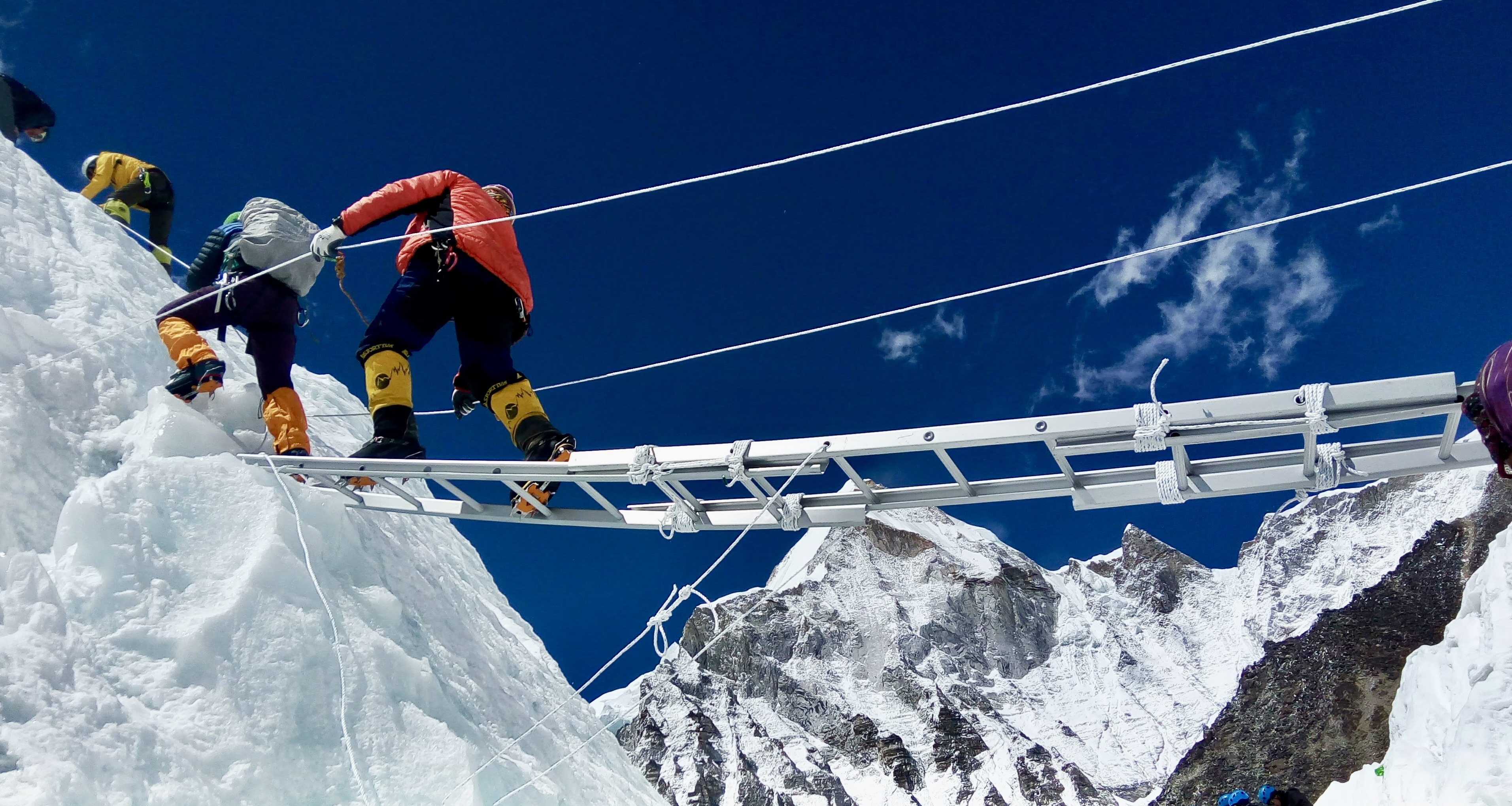
Island Peak, with its spectacular vistas and challenging routes, offers an unforgettable adventure for climbers seeking to test their limits in the Himalayas. From the comprehensive cost breakdown to the carefully crafted itinerary, proper preparation techniques, and the professional services provided by Everest Sherpa Expeditions, you now have all the essential information needed to embark on this remarkable journey. The practical guidance shared in this guide serves as your roadmap to a successful summit.
As you plan your Island Peak expedition, remember that the right preparation and choosing experienced guides make all the difference in your climbing experience. Everest Sherpa Expeditions brings generations of local expertise to ensure your safety and maximize your chances of reaching the summit. Whether you're an experienced mountaineer or taking on your first major peak, the breathtaking beauty and personal achievement of standing atop Island Peak await you.
Start planning your adventure today and prepare to create memories that will last a lifetime.
If you need any further information, please contact us by email: [email protected], Phone: +977- 980 195 6248 (WhatsApp).

